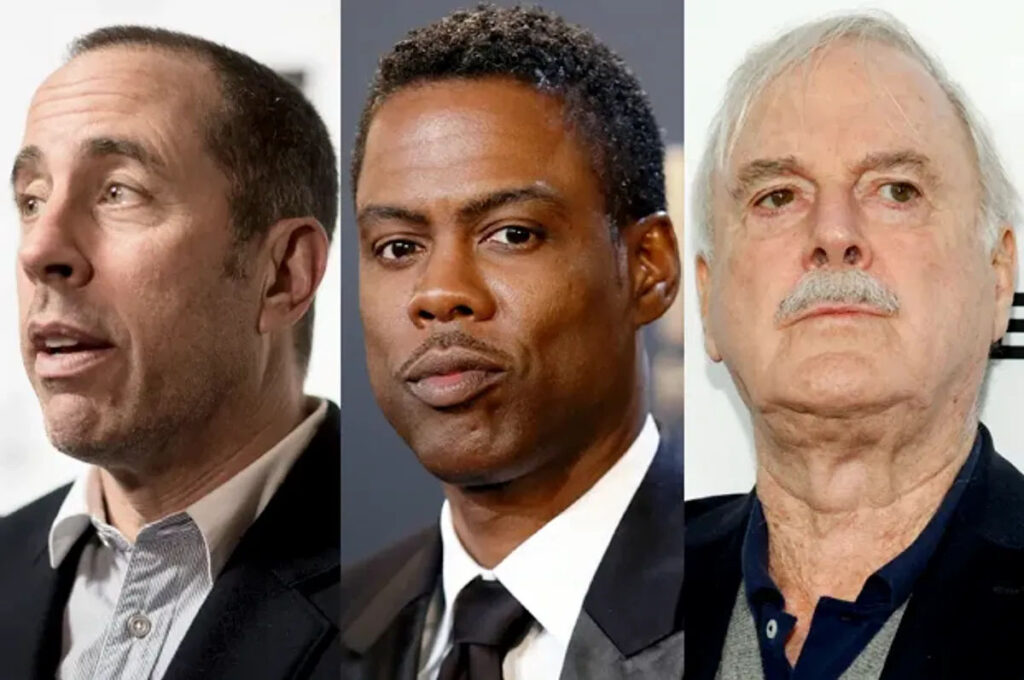Have you ever laughed at a joke, only to stop and think, “Should I really be laughing at this?” Well, many famous comedians are saying that political correctness is stopping us from enjoying comedy freely. These comments are from 2015, almost 8 years ago, but they are still relevant. In fact, the comedic environment is much worse in today’s hypersensitive political culture, with high probabilities of being “canceled” if you step out of line. While we normal folks are not afraid of being “canceled,” people who require audience support, e.g. actors, politicians, Hollywood celebrities and internet influencers can all find themselves devastatingly out of work with the least word spoken out of turn.
Jerry Seinfeld, a well-known comedian who usually steers clear of sensitive topics, once said that political correctness is hurting comedy. He pointed out that certain jokes he made in the past don’t get laughs anymore. He’s not alone in feeling this way. Chris Rock, John Cleese, and others have also spoken about how being overly cautious is affecting their work.
So, what’s the problem? Many comedians feel that they are being judged too harshly for their jokes. Chris Rock compared doing stand-up to trying out a new song. Before everyone had phones with cameras and microphones, a comedian could test a new joke, see if it went too far, and then adjust it. But now, one wrong move can lead to a backlash online.
John Cleese, famous for his work with Monty Python, wonders why it’s okay to joke about certain nationalities but not others. He says it feels patronizing, like some groups are too weak to handle a joke.
Then there’s Russell Peters who reminisces about the ’70s when TV shows made bolder jokes. He believes it’s the intent behind the joke that matters. If the aim is to make people laugh, then it shouldn’t be taken too seriously.
Some argue that comedy has always pushed boundaries. Scott Capurro, known for his outspoken style, says comedians help people see the world differently. They challenge our views, and if we all agreed on everything, then nothing would be funny. He feels that comedians are like light bulbs – shedding light on dark topics.
However, it’s not just male comedians who feel this way. Lisa Lampanelli, a female comedian known for her edgy style, says comedy is subjective. Everyone finds different things funny. She believes that if people want safe comedy, they can find it, but they shouldn’t expect all comedy to be safe.
On the other side of the debate, some people believe that being considerate is important. Lindy West, a writer, believes that political correctness has helped give a voice to those who were often ignored or ridiculed. John Hodgman, another comedian, says that he appreciates when people point out when he might be crossing a line because it helps him think and grow.
The core of the debate is this: should comedians be free to say anything they want, or should they be more mindful of who might get hurt by their words? This is not necessarily about free speech, since the government is not involved and no one telling these guys not to speak. It is rather about hypersensitive subsets who have power out of proportion to their numbers.
What’s clear is that comedy has always been a reflection of society. As our views and values change, so will the jokes we tell. But it’s essential to remember that laughter, one of the most genuine human reactions, should never be taken for granted. We know that certain jokes in China will get you thrown in jail.
